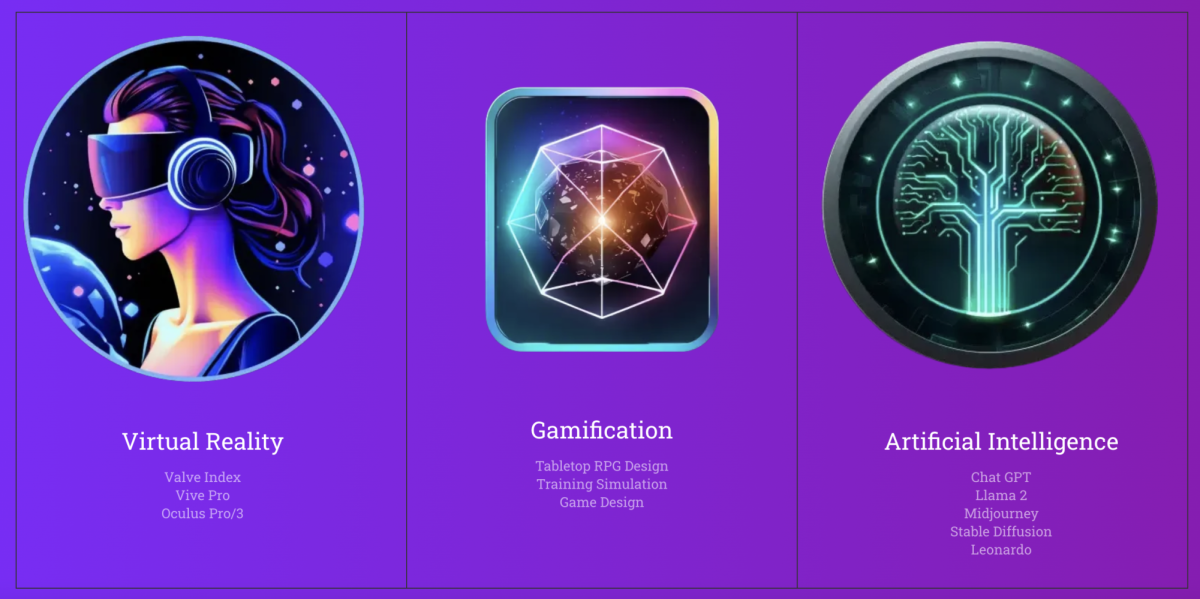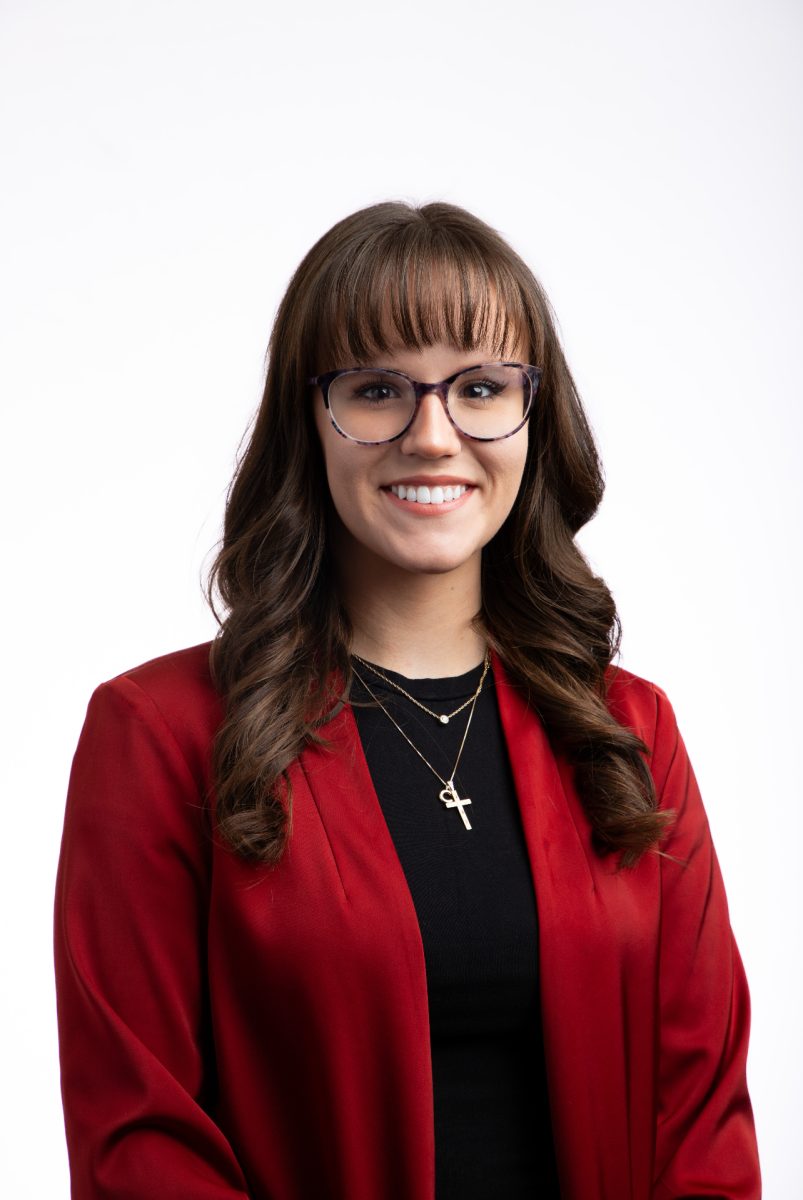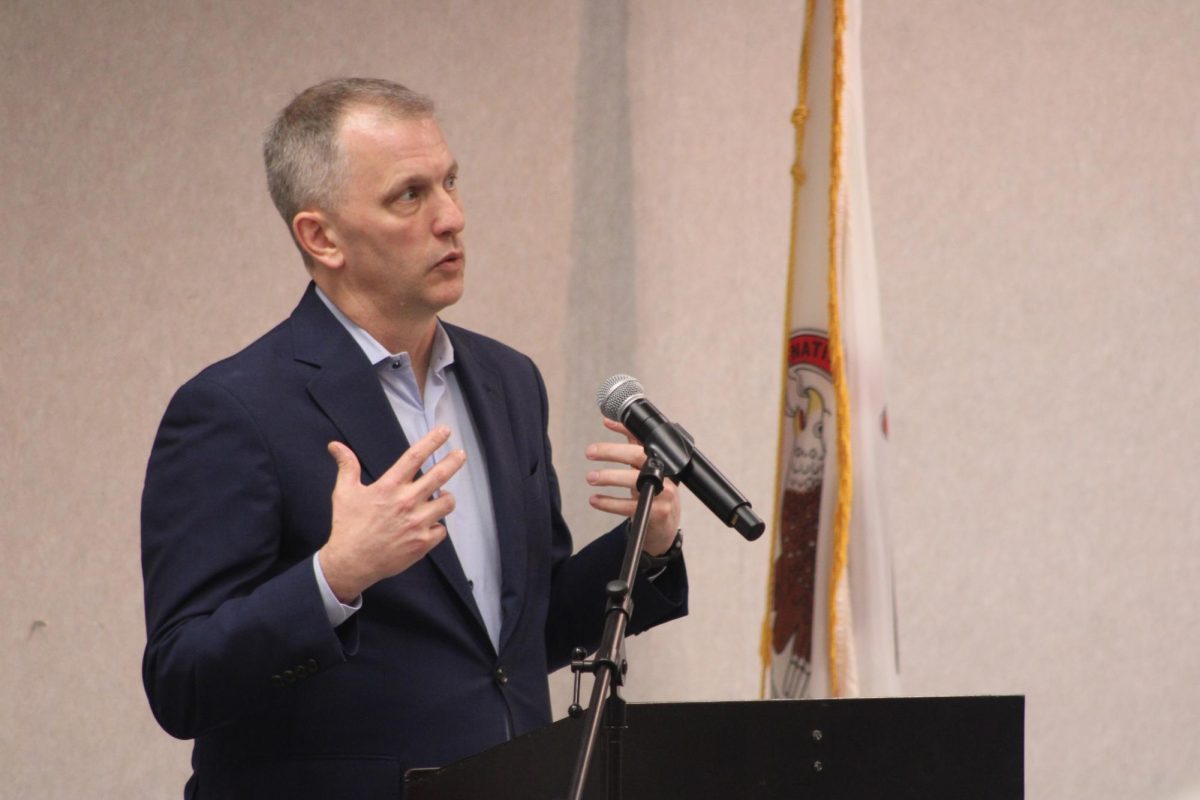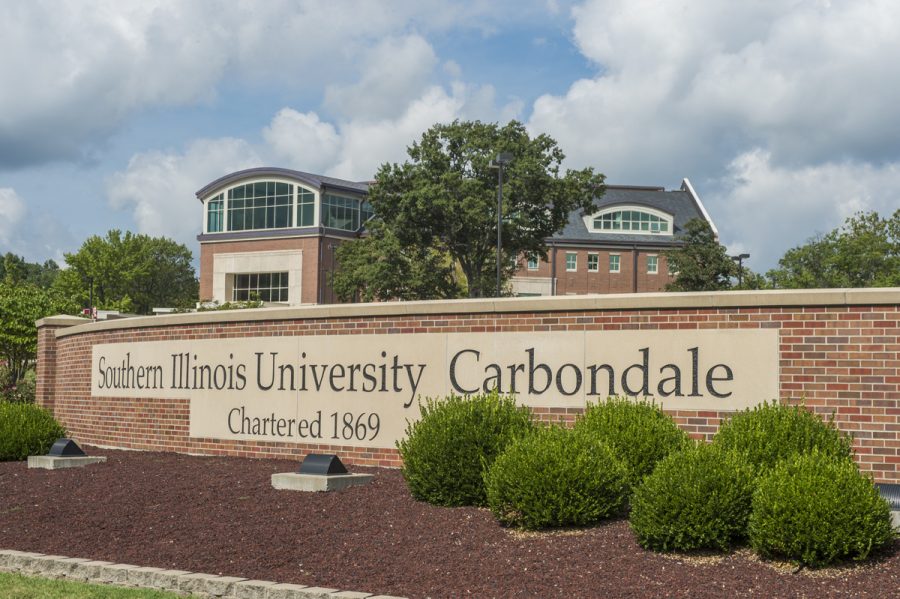In room 1229 of Faner Hall you will find the Center for Virtual Expression. What originally began as a podcasting lab about 6 years ago has been transformed through the years to address the ever-changing nature of technology.
“The SIU Foundation gave me an innovation grant to start the podcasting lab around 2018,” said CVeX director Pinckney Benedict, a professor in the School of Literature, Writing, and Digital Humanities. “It gave me enough money to buy equipment because podcasting was a big way of storytelling then as it is now.”
The lab has since then upgraded for vodcasting, and the center has expanded to include space and equipment for other pursuits too.
Advertisement
The first room in the center is the experimental classroom. The layout abandons traditional chairs and blackboards.
“It’s soft seating, all the chairs move, all the desks are sit-to-stand, and everything’s adjustable,” CVeX Assistant Director Tobias Merriman said. “Rafael Frumkin [CoLA, assistant professor] who uses the room, gave me my favorite quote about the experimental classroom which was ‘they come in and sit down like they’re in their friend’s living room.’”
The classroom accommodations include $3,000 Alienware gaming PCs with ultra-wide monitors, nice keyboards and mice, and everything built to spec by Merriman.
Using the experimental classroom and the technology has allowed Benedict to integrate AI, VR, and other teaching styles into his creative writing course and other classes pertaining to AI.
Sydne Kelley, who is taking Benedict’s creative writing course explains that it’s common to utilize these technologies in the class.
“He’s not requiring, but he’s kind of asking and somewhat expecting us to use some form of AI technology for all of our assignments. So that already was a shock to my system since for all my other classes they’re like, ‘don’t use it, don’t even touch it,’” Kelley said. “We’ve kind of touched on a lot of text to image AI and we’re starting to delve into AI for creating music.”
She also says that she’s seen some really creative works for homework come through in the creative writing class.
Advertisement*
“I think it’s kind of inspired a lot of us to get ideas that we’ve had in our heads for years out on paper.”
Benedict understands how the creative process can be aided the technological tools, and that’s why he finds it important to keep them handy in his curriculum.
“It’s a great assistant. And we’ve all begun creating types of work that we’ve never created before. We’re able to dabble in lots of different genres of work because we use the AI to sort of take away the boilerplate aspects of what we do,” he said.
Besides taking courses there, Kelley says the center is suitable for studying as well.
“It’s one of those comfortable spots where you don’t have bright fluorescence like the library has, what other classrooms have, what a lot of other computer labs have,” she said. “It has great internet. I don’t think I’ve ever had anything buffer or make me want to go insane because of low speed.”
Benedict has recently received a grant to modernize the CVeX classroom even more, and will be teaching an honors class this fall called Gamify Your Life, which will involve a lot of AI tech.
Other rooms within the center reveal offices for purposes ranging from video editing, research projects, and a communal area equipped with a green screen for gaming, conferences, and other miscellaneous purposes.
In one research studio, AI engineers are working on a project for the School of Medicine, creating and perfecting an AI patient avatar named Randy, offering med students an opportunity to practice diagnostics and bedside manner on various personality types.
In another, psych students are conducting spatial acuity research. Details of any projects can be found on the Center’s website, cvex.ai under the project gallery tab.
One of the rooms holds a $10,000 MAC computer that is available to students for purposes of video editing, offering applications such as Final Cut Pro. So far, it has been used by the School of Music for VR recordings of music performances.
Virtual reality has been the center of attention for CVeX for a while, but the focus is changing.
“When ChatGPT came out and went public about a year and a half ago, we became an AI center just because that’s the tech that is setting the world on fire right now, but we still do it all,” Benedict said.
Now that a lot of the attention is on AI and tools like ChatGPT infiltrating the classroom, the center does educational projects to help spread awareness on how faculty and staff can use the tools ethically, which is why Benedict and Merriman appreciate the work the CoLA Dean Joddy Murray and the Interim Associate Dean Benjamin Bricker put in to ensure the center has the resources it needs and that it can go through the final stages of approval as an actual center in the SIU system.
“[Bricker] has been hugely supportive in our bid for legitimacy and helping us get documents together. Last week actually, there was a Faculty Senate vote that was unanimous in favor of our being named a temporary center,” Benedict said.
Bricker says that this is a step in the technical process put in place by the Illinois Board of Higher Education, who says that when a new center is established at any university, it has to be established as a temporary center first.
“It seems promising. There’s a lot of interest that we’ve seen. The board of trustees just visited last week and various stakeholders at the university have visited who have been impressed with the center,” Bricker said.
Bricker is also an Associate Professor of Political Science at SIU and understands the work CVeX is doing to inform faculty of the challenges and benefits that will arise through AI.
“I’m very much a Luddite in my own technological life, but I am developing a class with [Merriman’s] help,” Bricker said.
This would be a mock-trial course for pre-law students.
“One of the elements I’d like to add is a virtual reality Courtroom where students can do a practice round with a VR version of the Supreme Court bench,” Bricker said. “They will still be asking each other questions and the students who are in the job of the attorney will still be formulating their own arguments, but instead of having other students always be the panel of judges, it can be Justice Ginsburg or Chief Justice Roberts.”
CVeX has already worked with the history program to incorporate elements of various AI programs like this into their courses.
“They’ve done a brilliant job of building artificial intelligence into their curriculum,” Benedict said. “John Bean, who is the Director of History, and Joe Sramek [Associate Professor in History], are building AI personalities.”
Bricker says that at first these conversations may be a little bit eerie, but if you take the time to get used to conversing with AI, that it’s pretty interesting.
A challenge is how they can address students relying on these tools, ChatGPT for instance, for homework answers.
“I’ll give an example,” Bricker said, “In one of my own classes that worked in person and also online, I would say ‘provide a two-paragraph response about Sojourner Truth and the importance of the speech she gives’ and basically anyone can go into ChatGPT and it’ll give you an answer. So now I need to maybe move a step further and challenge students in a different way.”
How can we advance the curriculum and advance student learning? Is a question posed by Bricker.
Part of Merriman’s job is to update faculty and talk to the student body, and he has given informal AI demonstrations to sections such as English 101 or 102, or UNIV 101 as directors are looking at updating the syllabi to include AI ethics and AI basics.
“I hope that what we bake into English 101 and UNIV 101 is a fundamental understanding of what’s allowed, what’s legal, what’s effective, and what’s cool to use in SIU classes still subject to the professor’s syllabus rules,” Merriman said. “By the time you graduate, it will be so second nature that when you’re out there interviewing and the company goes, ‘are you versed in AI?’ You’d be like, ‘I’ve been using it my whole degree. I use it in English class, math, I’m great with it.’ It’s going to be a component to you, that’s all.”
“CoLA’s retention numbers are good now, and we want to make them even better, and this place is part of how we do that. It’s our promise to the student that your education is going to be as relevant and valuable as possible,” Merriman said.
Advertisement




















